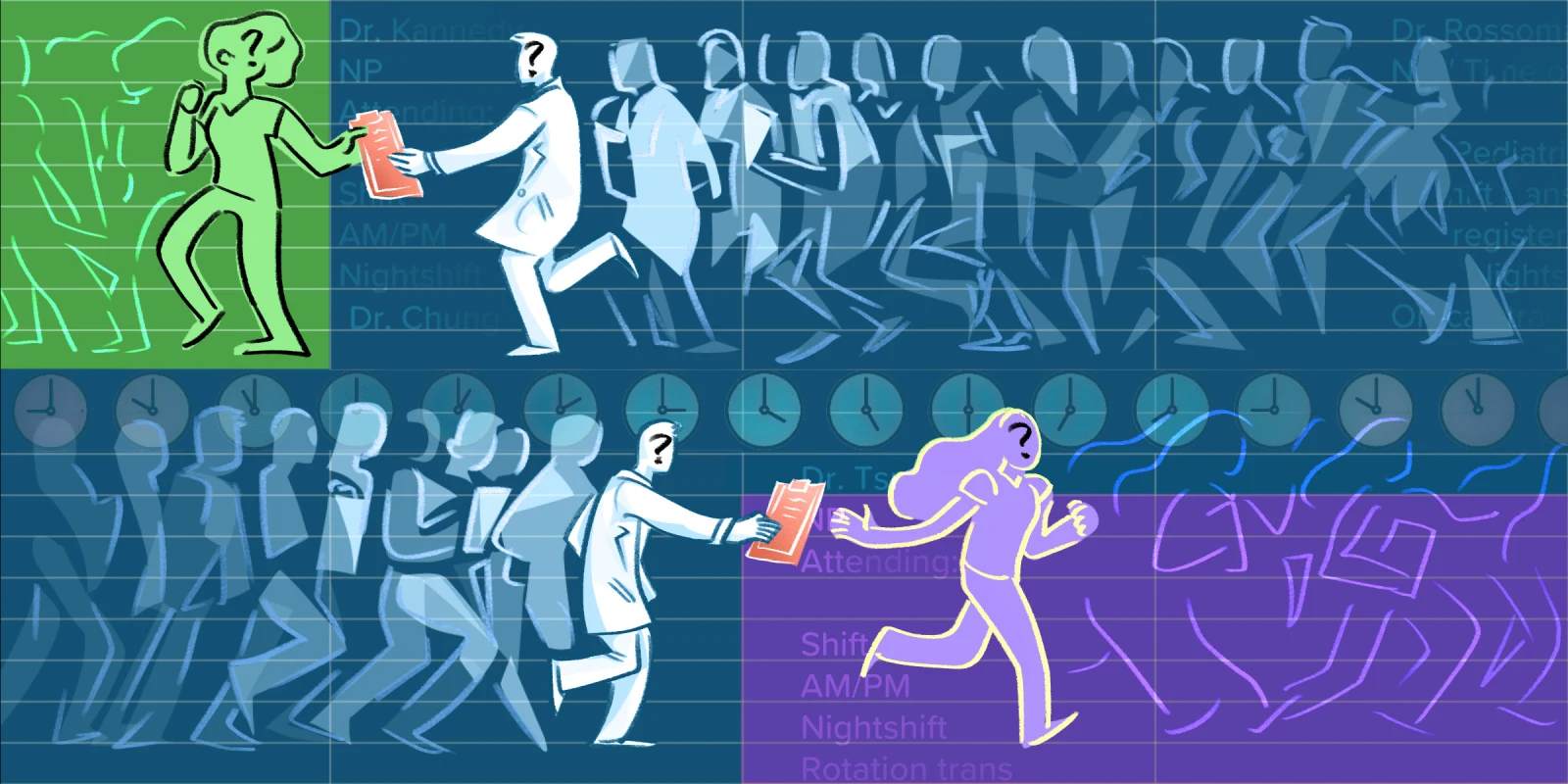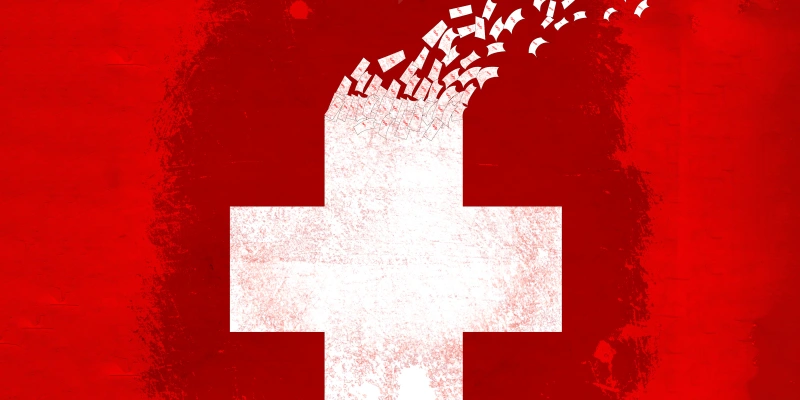“Dr. Chung!”
I am not Dr. Chung. Dr. Chung is a colleague, a good doctor, a resilient, hard-working intern. He left for another rotation two weeks ago.
“Dr. Chung! Dr. Chung!”
Dr. Chung and I are both of Asian descent, he’s from Michigan, I’m from California. Granted, we are roughly the same height, but my hair is kept high and tight, in what I like to call a “pandemic ponytail.” I haven’t been to a proper stylist in a few months. My wife is getting pretty good at cutting hair. Dr. Chung is unmarried. He’s quite a catch, though, so I’m sure it’ll happen very soon.
“Dr. Chung! I need you to order this for Room 225. He’s been asking for it all morning. He’s in a lot of pain, so if you could take a look that would be great. Thank you.”
I turn around. It’s Stephanie, one of the med/surg nurses. She’s been here for about 12 years. She’s also a big fan of one of the local pizza spots, Papa Murphy’s. Last Sunday she told me that she loves their meatball sub pizza. It sounded pretty good. I might get one after I finish my last call shift for this week.
“Thanks Stephanie. I’ll get on it.” I hurry back up the stairs to the residents’ on-call room. As I’m climbing the stairs, I can’t help but wonder why she still has me confused with Dr. Chung. I spend time on the floor, in and out of patient rooms, checking the monitors; we’ve even run a code together. I feel that I make it a point to remember the names, faces, and personal quirks of the people I work with, not only to make it easier to work with them, but because I am clearly naive enough to believe and actually try to do those things that our attendings, preceptors, and professors have always told us to do: to be kind, to be aware, to invest in people, to foster intercollegial professionalism. And for what? To be glossed over, to be mistaken for someone else, to be thrown into this med/surg nurse’s ever-growing mental pile of “interns I’ll never see again after three weeks”?
Yeah, probably.
It’s clearly too much to ask for this kind of consideration in return, especially during training. After all, there’s little point to learning the likes and dislikes, preferences, and personal stories of the people I’ve worked with so far, right? I’m only here for a few weeks, a month here and there. After all, it’s only a few years of training before I move on to my “real career.” I can’t be all that surprised when I get mistaken for yet another intern, much less “the other Asian doctor.”
At the top of the stairs, I take a moment. Room 225 has been complaining all morning. He’s in pain. Just go put in the orders.
Fast forward to the next day, where I stroll to the nurses’ station wearing my best of-course-I'm-not-even-a-little-bit-tired! face. “Thanks for the heads up on Room 225, Stephanie. He feels a lot better today, said it was the first time he’s been able to sleep through the night in the last few days. Really helped out.” I’m pretty sure I look tired.
“Um, I’m Kim. Stephanie has been off this whole week.”
Oh, shit. Has Stephanie been gone the whole week? Stephanie, the tall, dirty blonde, ponytail with the wry half-smile who loves Papa Murphy’s and who is definitely NOT the nurse with the pink ombre bob cut with blue eyes that I’ve been working with these past four days has been gone the whole week? I’m definitely, absolutely, undoubtedly certain that I look tired.
“I’m so sorry. I must have gotten you guys mixed up. It’s been a long week and things just slip away from me sometimes! I’m really sorry about that Kim.”
“It’s alright, I’m just glad that the patient is feeling better! Thank you again for getting those orders in, Dr. Chung.”
“No problem, Kim.”
That’s when it really hit me: I’m not just “the other Asian doctor,” I’m just another doctor.
I know this likely isn’t the first time I’ll forget a name, be called by the wrong one, or be mistaken for a student, a nurse, or a social worker. I know that, because it already isn’t, and it’s common enough that every resident, intern, attending, nurse, respiratory therapist, physical therapist, and even custodial staff on my floor has stories like this. But after eight straight weeks of call shifts every other day and countless hours walking around the same two floors every day, I guess I thought I was someone who was worth remembering, or at the very least recognizable. But I’m not. I’m just another passerby.
Of course, everyone who does shift work knows this. This week may be good, but don’t get comfortable, a new team is coming on next week ... I like this nurse, she’s quick, engaged in rounds, her reports are clear and concise, and her name is “Grace” or “G” something? ... Yeah, this guy is kind of all over the place, but he only works two weekends a month so it’s fine. Many of those who work shifts prefer it this way. It’s a feature, a perk of the system, not a bug.
But, I get it. I see the necessity of it. I know I don’t have to like it, and I know that once my training comes to an end, I’ll have the option of being a part of it or not. I know that I have a choice. I just was a bit surprised at how invisible I felt, how replaceable, and, ultimately, how unimportant I realized I am. The experience made me realize that the work is what persists; the people, not so much. We have to purposefully make that part as real as the work itself. It’s the inexorable entropy of a system that doesn’t sleep, doesn’t stop, and is in an ever-present state of falling apart. Whoever or whatever becomes a custodian of keeping it together just isn’t that important at the end of the day. What’s important is that the system doesn’t fall apart. But the other truth I know, that the naive, hopeful me from med school was taught, is that the people persist, too. From the interns to the nurses, custodians to attendings, patient to patient, they don’t just leave the shift and disappear, only to rematerialize two weeks later for another shift. They persist. They deserve just as much consideration and respect as the job they do. Even if it is “just another shift.”
I’ll power through, for now. But after these last eight weeks, I know that shift work just isn’t for me. I don’t like the feeling of being a cog; swappable, interchangeable. I don’t like falling into the trap of doing it to others, either. I don’t have any good alternatives for the need shift work fills, and I get it, the necessity of it. Still, l think I prefer to stick to my naivete, and I’ll try my best not to get Kim mixed up with Stephanie ever again.
What are your thoughts on shift work? Share how you keep from being invisible in the comments.
Tim Hsu, MD is a big ball of yarn. He spends most of his time being batted around by his cat. In his free time he reads, plays video games, and occasionally gets some work done. You know, just a typical psychiatry resident. He is a 2020–2021 Doximity Op-Med Fellow. The names in this piece were fabricated to protect the identities of his colleagues.
Illustration by April Brust







